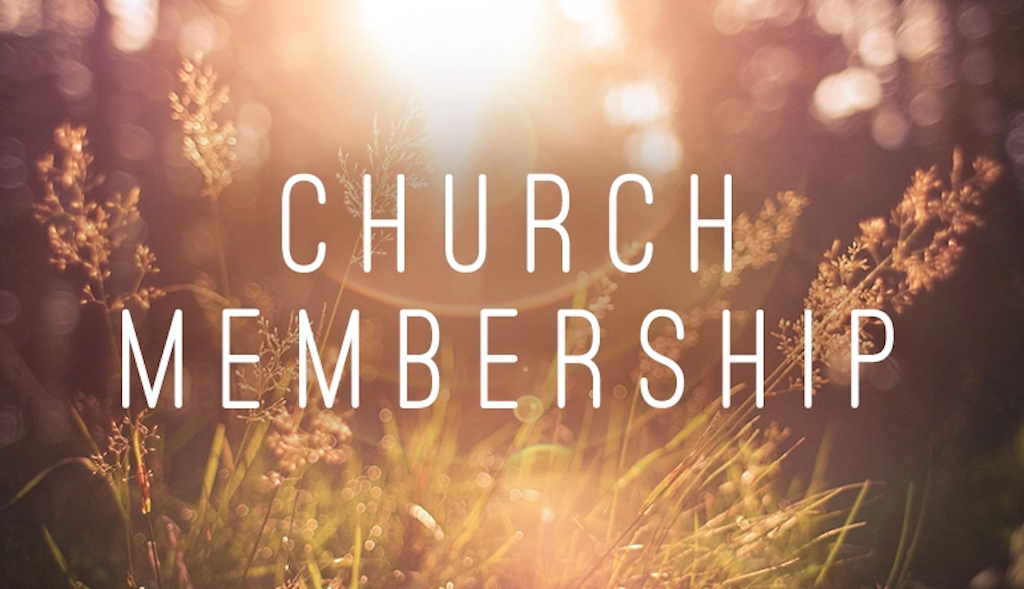I’ll lay my cards on the table: Your church plant needs membership to become a church. In other words, please don’t read the title of this article like you would read “5 Reasons Your Church Plant Needs a Website.” Your church plant would very much benefit from a website, but it certainly does not need a website. However, your church plant needs membership.
I would offer five reasons:
1. God Makes a Distinction; So Should We. The story of the Bible is God making a distinction between those who are His people and those who are not. From the earliest stories of Genesis, we see this truth. God regarded Abel’s sacrifice and not Cain’s. Enoch walked with God while the rest of the list in Genesis 5 did not. God saved Noah and his family while he judged the rest of the world.
This theme continues throughout the Old Testament narrative in showing God’s relationship with Israel and then into the New Testament in reference to the church.
Fast-forward the narrative and think of Matthew 25, one of the last scenes of human history that we see foretold. The Son of Man is going to sit on his throne and the nations will gather before him. What will the Son of Man do? He will separate them – like a man separates sheep and goats.
Church membership is the act of making a distinction between those who are part of Jesus’ church and those who are not.
2. Membership Makes the Metaphors Make Sense. Imagine you and I were to meet in person – perhaps at the church building where I pastor. As you walk up to shake my hand, you notice a women’s Bible study is just letting out behind me. Then imagine that I wave my hand in the general direction of the group of 25 women and say, “Let me introduce you to my wife.”
You would understandably have a lot of questions: Are all these women Brian’s wife? Is one of them his wife? If so, which one is his wife?
If you ever preach about the church being the “bride of Christ,” the “body of Christ” or the “family of God” without clarifying who you’re referencing, you are being as vague and confusing as me calling a group of 25 women “my wife.”
Church membership puts lines around who is in and who is out. It defines who the local church is. And although our lines are not perfect, they certainly make the metaphors far clearer than having no lines.
3. Members of Local Churches Can Obey the New Testament. Let’s look at just a few clear instructions in the New Testament. Imagine attempting to obey each of these instructions as a part of a church with recognized members versus attempting to obey these instructions without such a structure:
- “If he refuses to listen to them, tell it to the church.” (Matt. 18:17a)
- “Purge the evil person from among you.” (1 Cor. 5:13)
- “Obey your leaders and submit to them.” (Heb. 13:17)
It is impossible to tell something to a vague mob of people. It is impossible to remove people from an undefined organization. And it is impossible to obey and submit to your leaders if we have failed to identify who is a part of the church and who the leaders of said church are.
4. Churches with Membership Can Act. Now look at the New Testament from a different perspective. In the New Testament, local churches act – they do things. How can a church without membership act? How can she make decisions? How can she do the types of things below that we see the church doing?
Throughout the New Testament, we see churches appointing elders and deacons, sending out missionaries, executing church discipline, sending financial contributions and a host of other things. Churches without defined membership cannot make decisions as a church.
You may say, “Oh yeah, I do all that on behalf of the church.” In this statement, you are creating something quite different than a New Testament church.
A church comprised of defined members can gather and accomplish things in obedience to Jesus. She can do all the things we see churches doing in the New Testament.
5. Leaders of Churches with Membership Can Obey the New Testament. In #3 above, I refer to Hebrews 13:17. In that passage, the writer says the leaders are keeping watch over the souls of the people and will have to give an account for those souls.
For whom will you give an account? The guy who came one time? The family who attended for a while, but then faded off?
Without membership, you will have very vague and confusing answers to these questions. Membership draws lines to help you be faithful to the responsibility God has placed on you. After all, the writer of Hebrews says in the next sentence that leaders should be able to serve in church leadership “with joy and not with groaning.” Vague and confusing job descriptions rarely lead to a joy-filled vocation.
I know I haven’t solved all the questions this article has sparked in your mind. However, I pray that I have pulled at the thread of conviction you’ve already had: that you need to work hard to figure out the challenges of church membership in obedience to Christ.
If you need church membership in your church plant, then you will do the hard work of making it happen.
Published March 23, 2022




